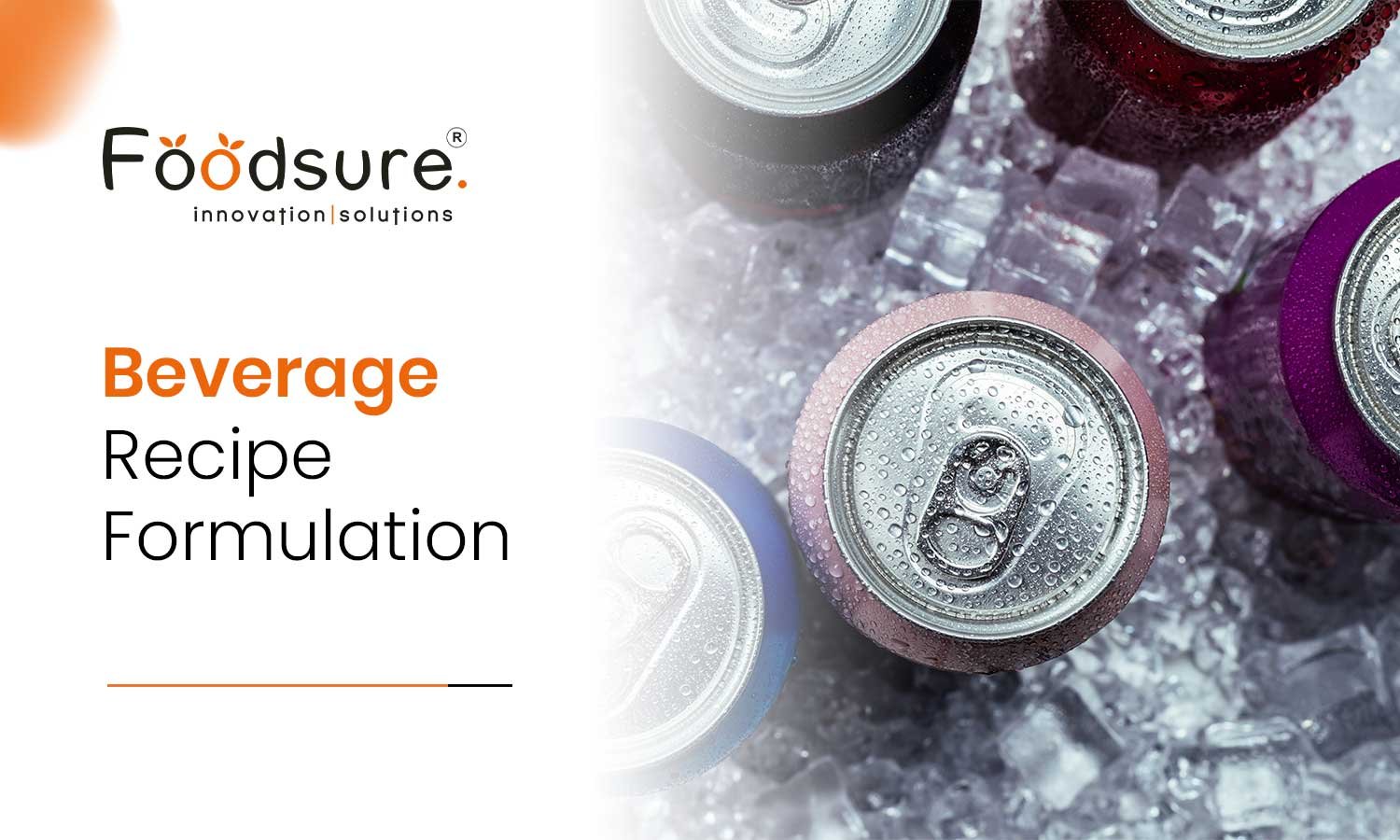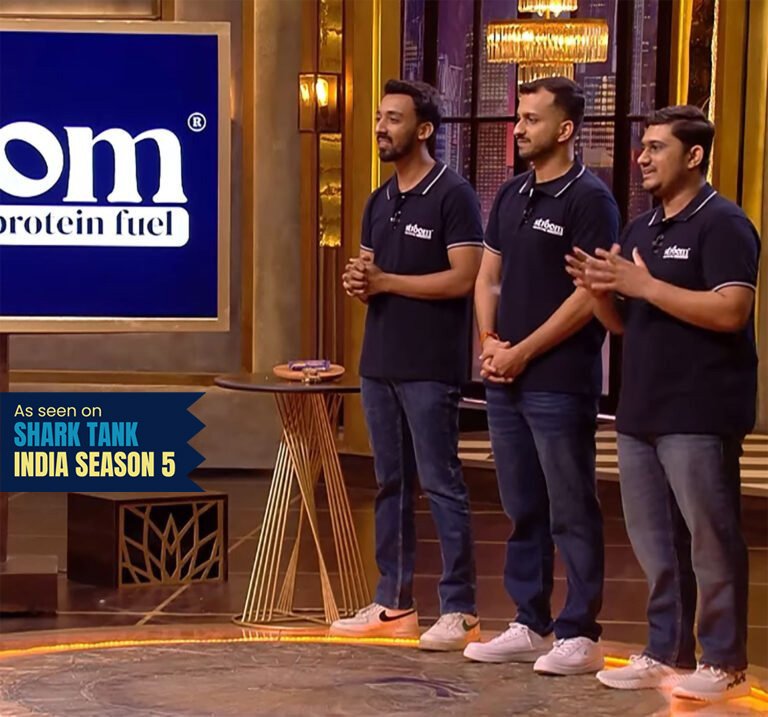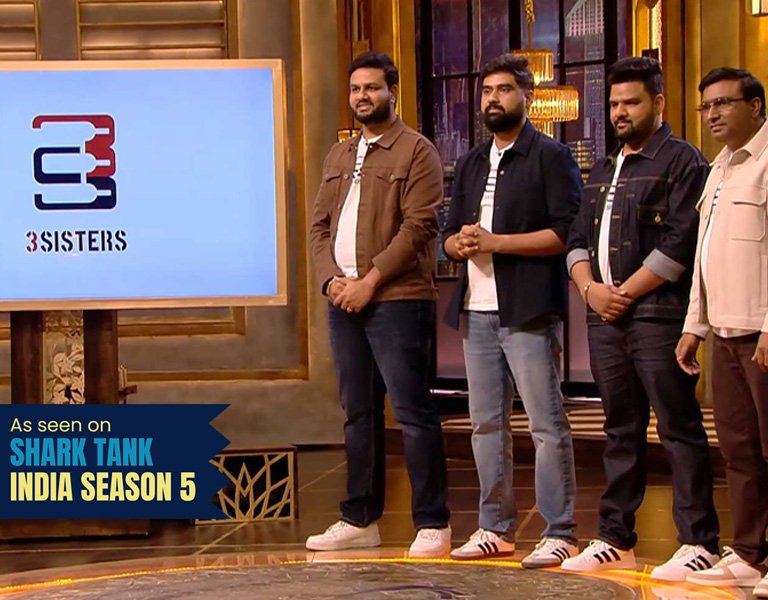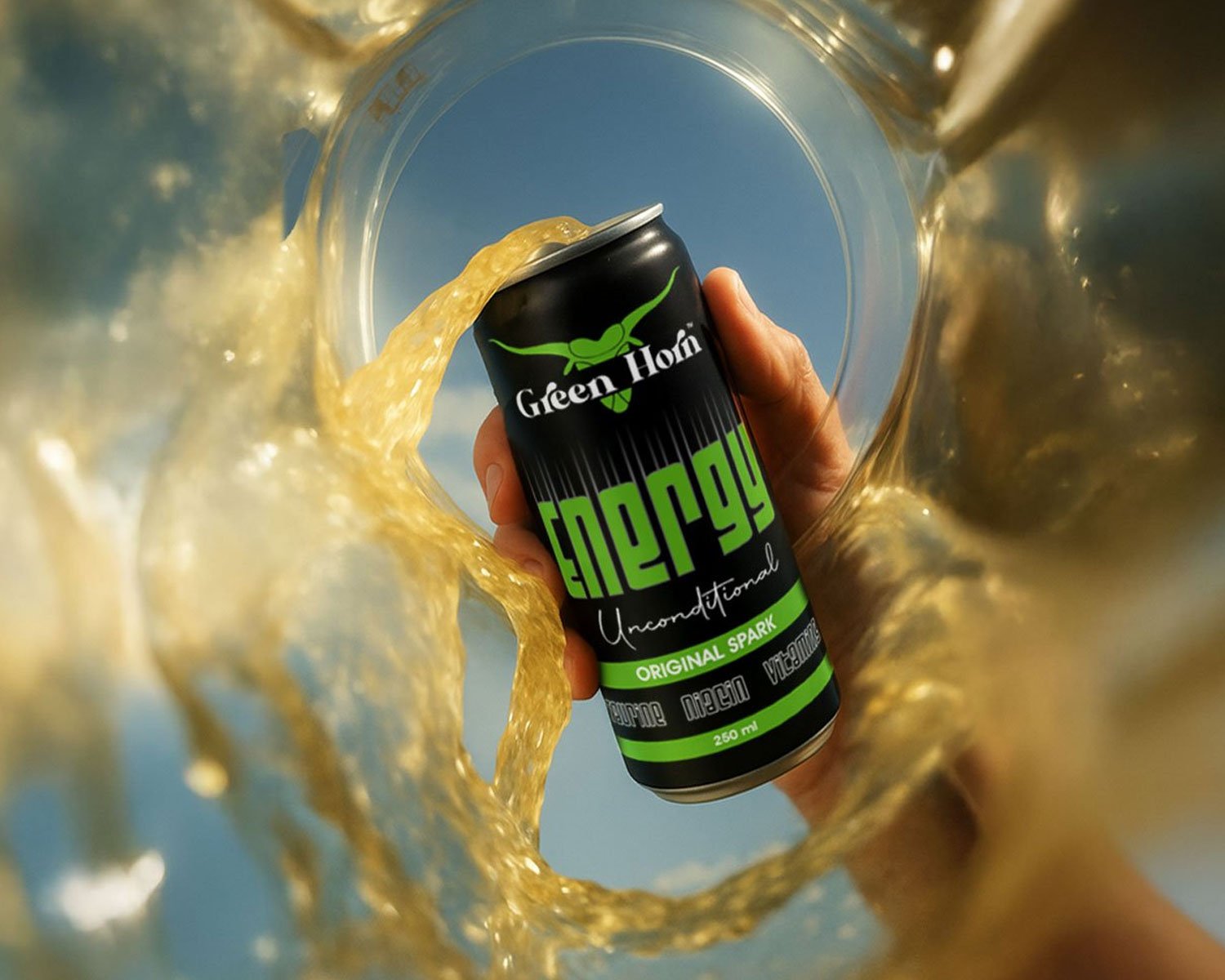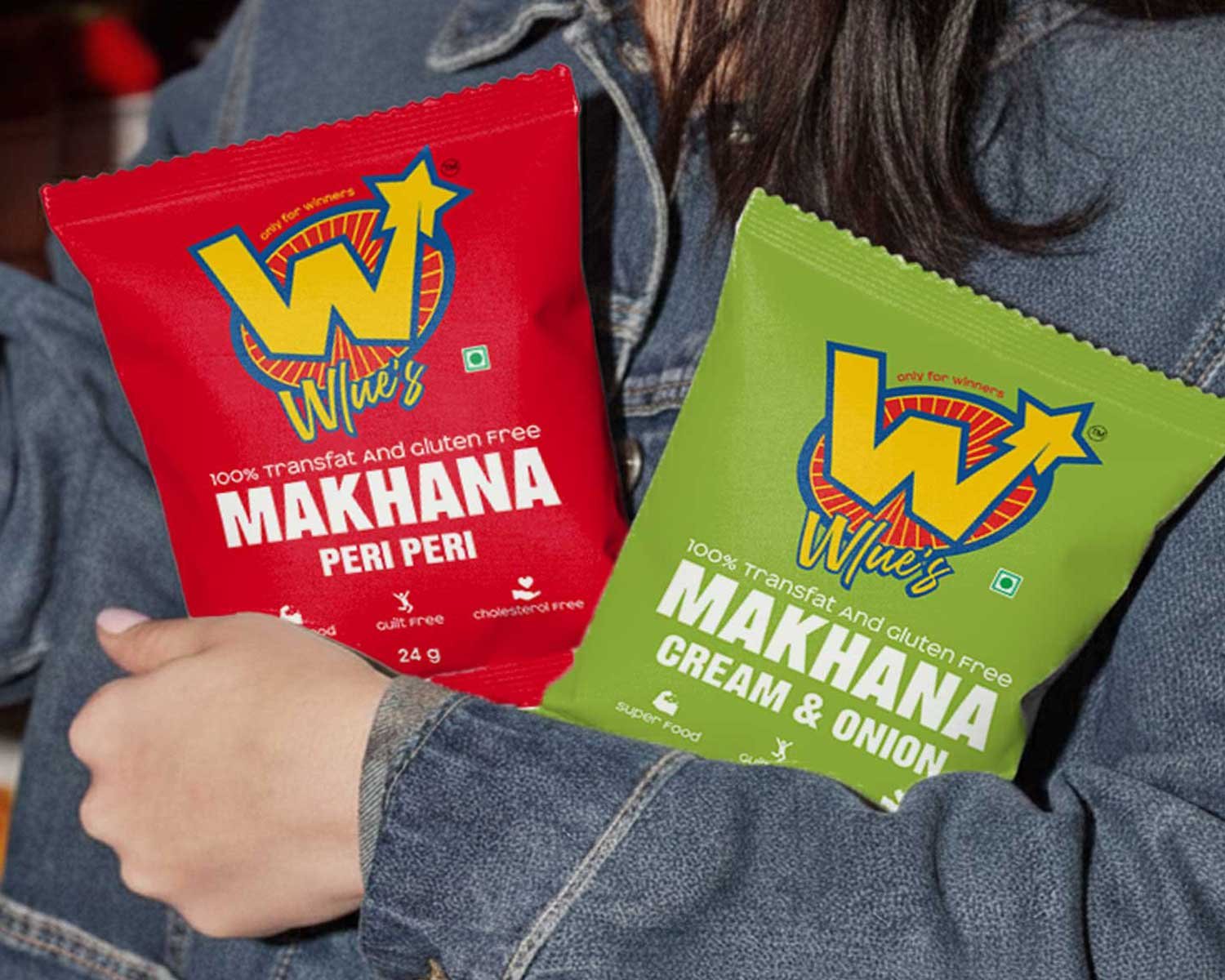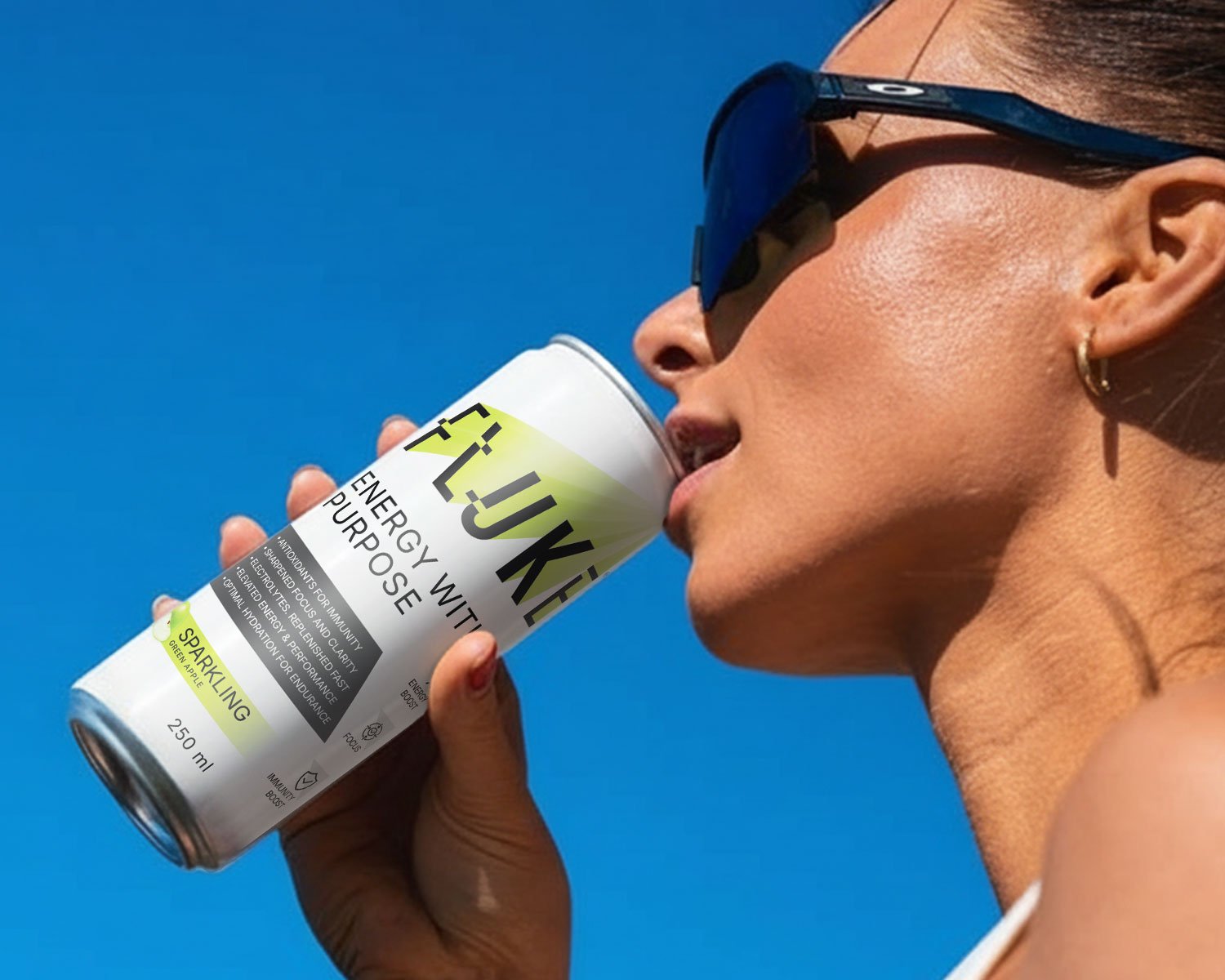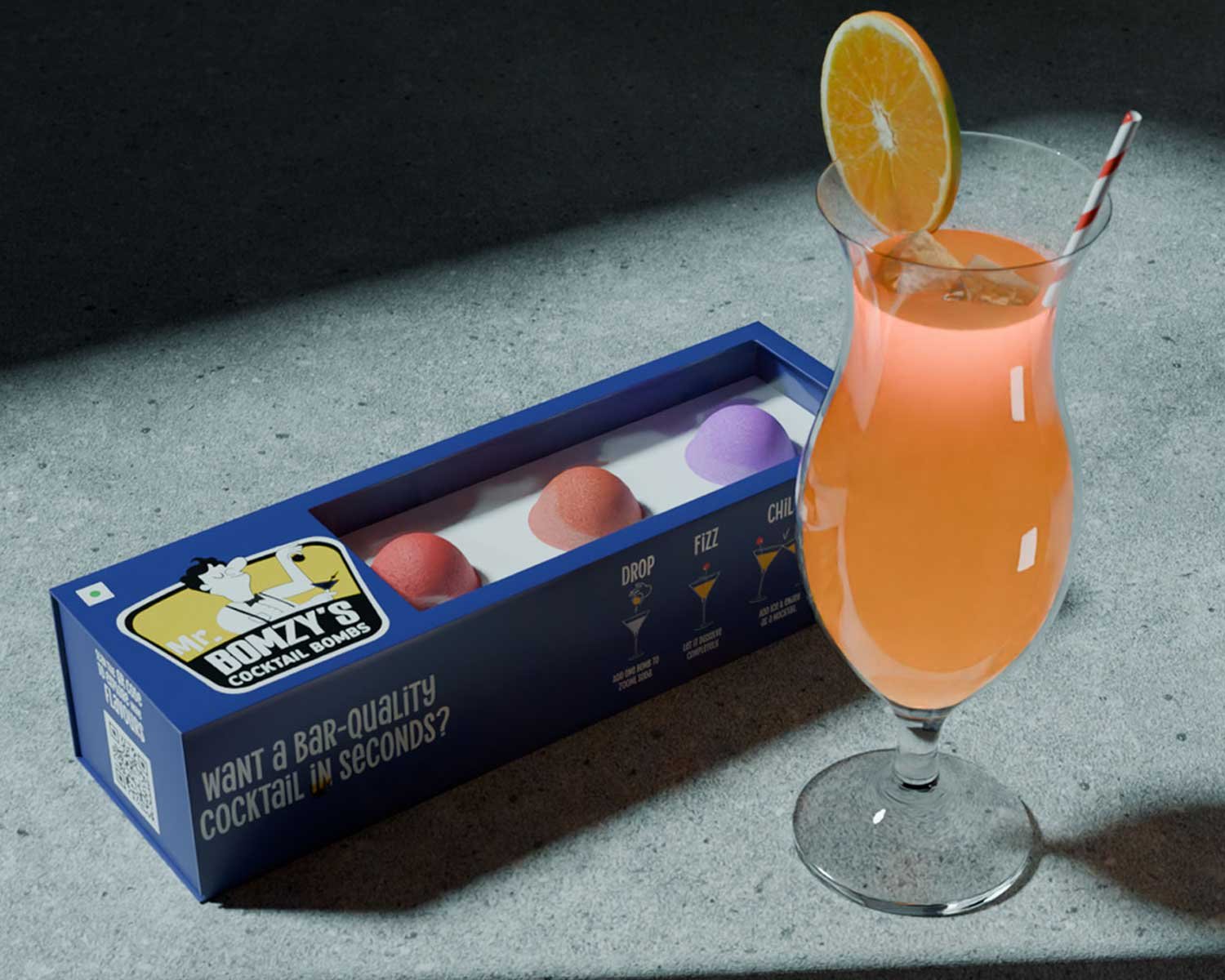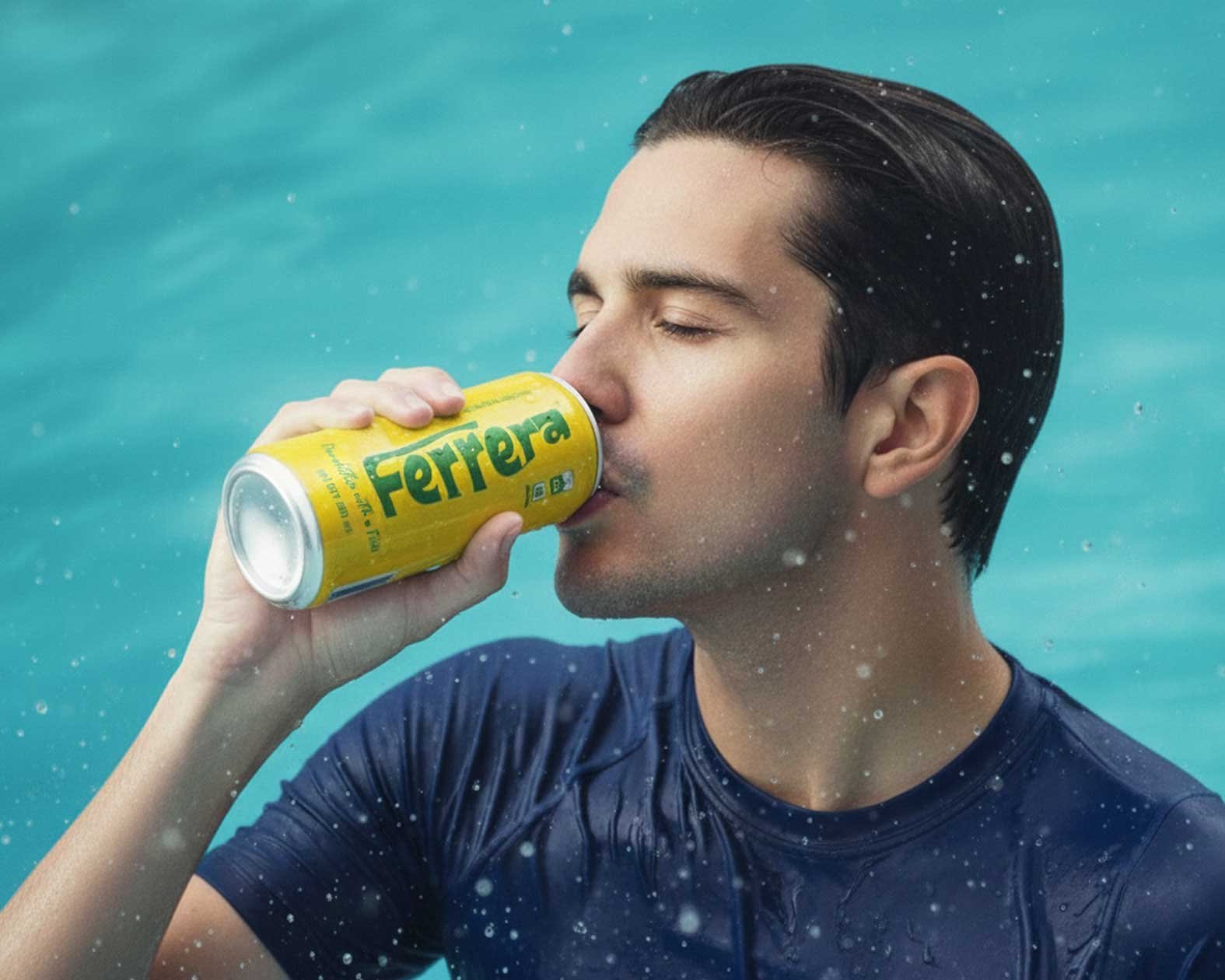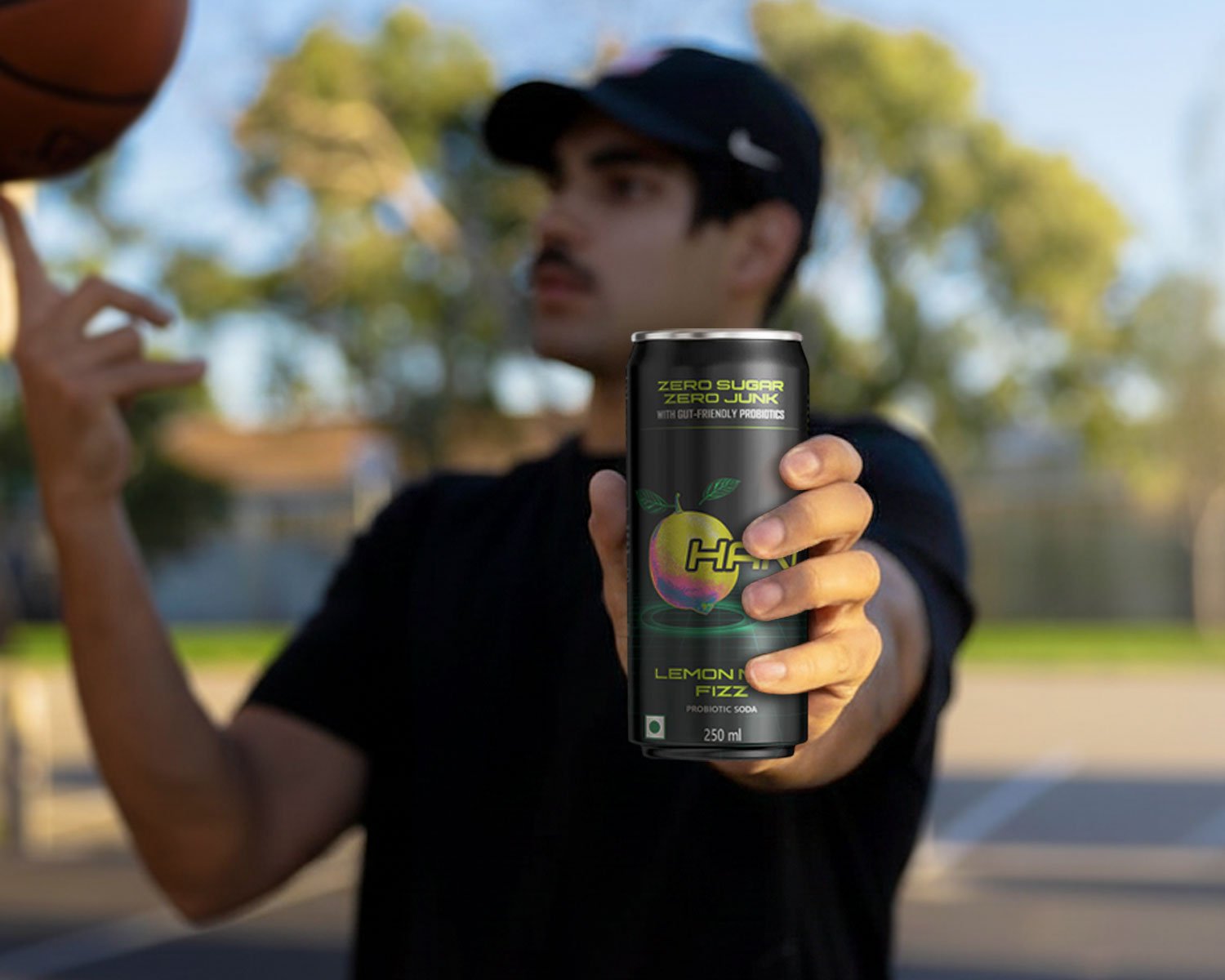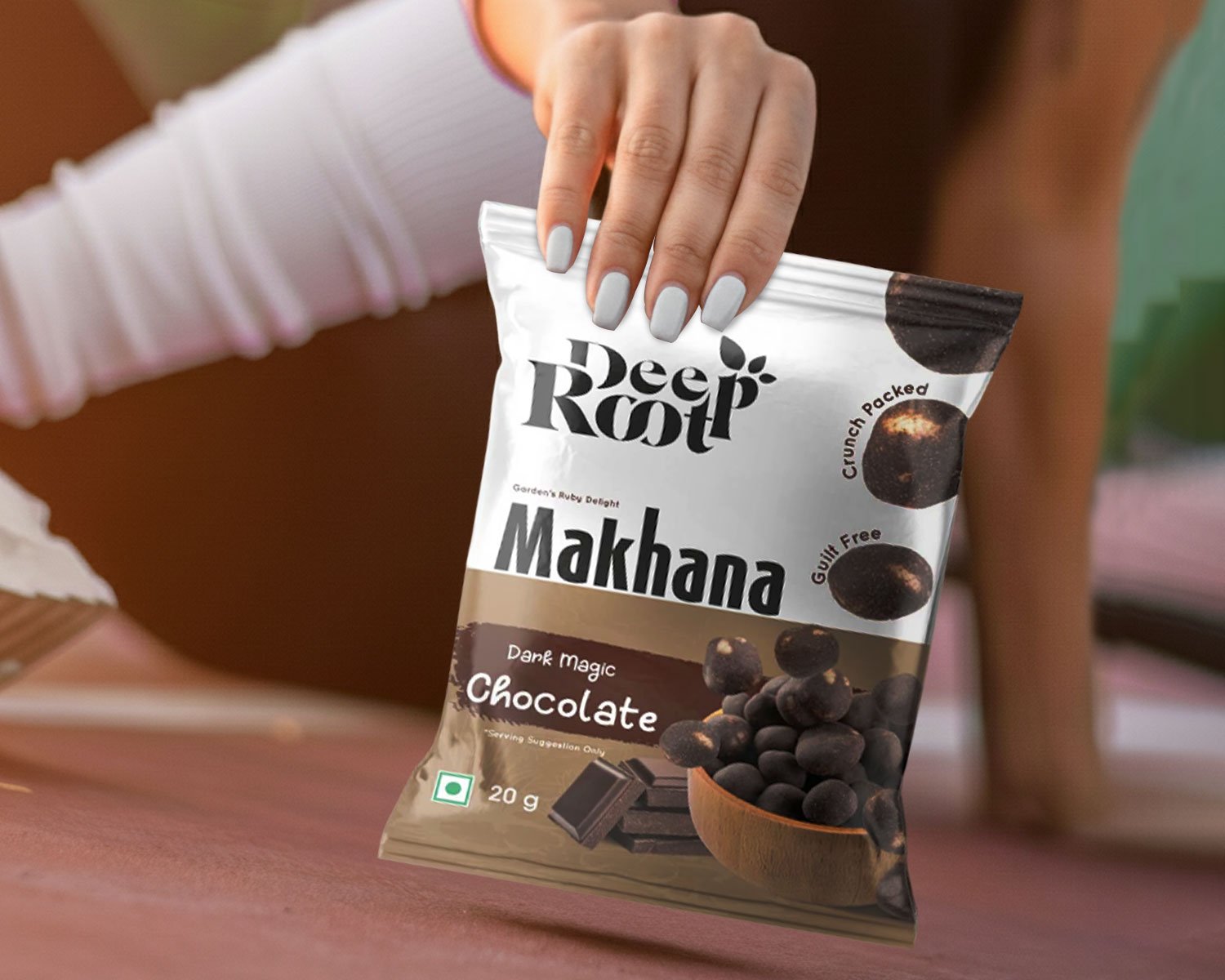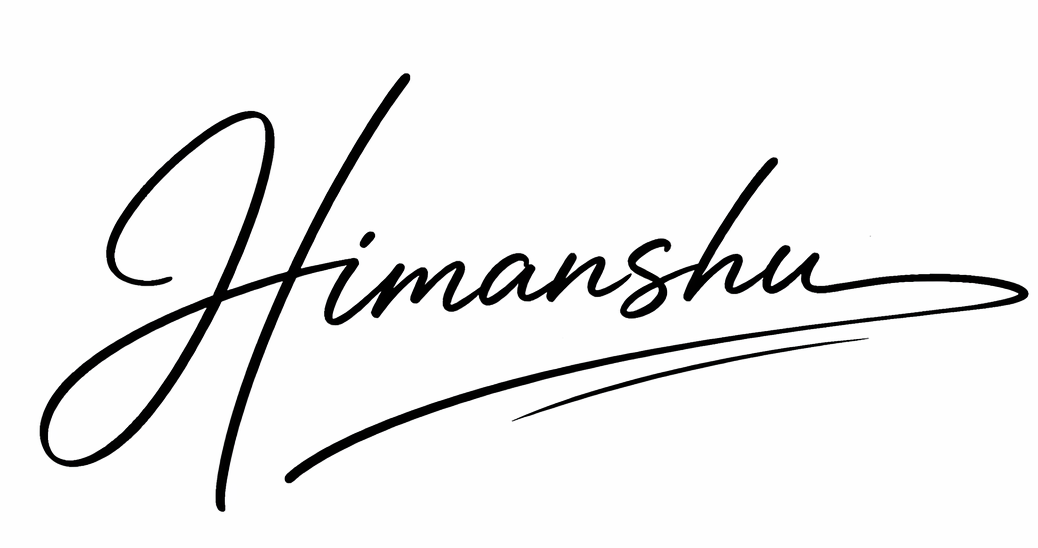At some point or the other, one might have thought about the processes that go into formulating favorite drinks. Whether it’s a thirst-quenching iced tea in the middle of the hot summer or a comforting spiced latte in cold winters, there is a lot that goes into the making of every sip. This process is called the beverage recipe formulation of what is commonly referred to as ‘beverage recipes’, and it may well be an exact art and science of recipes.
Mixing the proper drink means knowing which ingredients will complement each other; it is a combination of know-how and creativity, and self-knowledge about what the clients want. In this blog, we will spread some light on how to create a beverage formula and on each stage of the process in general, as well as reveal how to do beverage formulation that would be unique or, at least, different from other similar drinks available on the market.
1. Ideation and Concept Development: Where Creativity Begins
Creativity is the game that starts at the conception of thought from the mind of the creator, becoming real as it goes through its beverage recipe development process. Ideation is the initial step in the procedure of composing the beverage recipe formulation, which encompasses creating ideas that are relevant and appropriate to the existing market. This marks the creativity portion of the show.
Key Considerations
➔ Market Trends: Know the trends in the industry that you think might be developed, for instance, functional beverages, plant-based drinks, or no-sugar-added soft foods and beverages.
➔ Target Audience: Determine the target consumer in this case, anyone interested in improving his or her health, athletes, or any working people.
➔ Flavour Profiles: Try out new combinations to get a blend that is not commonly seen but would be visually satisfying.
➔ Example: As you design an energy drink, picture yourself as if it is the first one out in the market. You may begin by carrying out some surveys on the rising market of organic energy sources, then opt to use products such as green tea supplements and ginseng instead of regular energy enhancers.
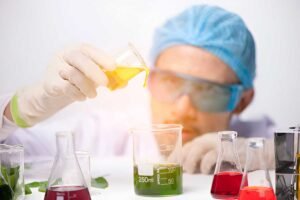
2. Ingredient Selection: The Heart of Your Beverage
Once you’ve nailed down your concept, the next step is selecting the right ingredients. This stage is crucial as it determines the flavor, nutritional value, and overall quality of the beverage.
Primary Considerations
➔ Quality: You should make sure you prepare your foods using fresh, quality ingredients to enhance the quality of the foods you prepare.
➔ Functionality: Some of them are antioxidant-containing, vitamins or even friendly pro-bacteria also known as probiotics.
➔ Flavour Harmony: Make sure that one does not overshadow the other and each complements the other to give the right taste.
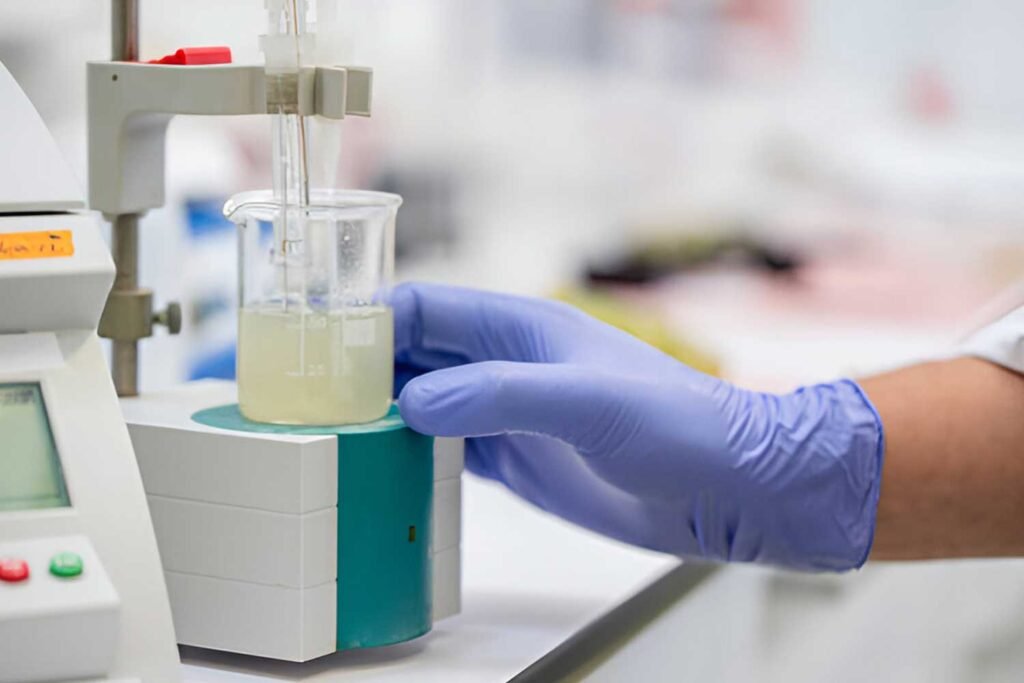
3. Formulation and Testing: The Repetition of the Process
This is the area where the art and science of the preparation of beverage recipes really count. In formulation, concepts are developed, models are built, and in some cases, even physical models are prepared, and in testing, actual drink recipe creation, the relative proportions of the ingredients are attained, and sensory analysis is conducted to ensure that the final product has the required characteristics.
Steps Involved
➔ Prototype Development: Prepare samples of your beverage by preparing small amounts of some variations of your ingredients.
➔ Sensory Testing: Sample the product or beverage to a group of people, totaling the number needed for testing to assess the product’s flavor, mouthwatering taste, and satisfaction.
➔ Adjustments: Tweak the recipe based on the customers’ responses and different experiments.
Let’s do beverage creation that customers will crave and love with Foodsure
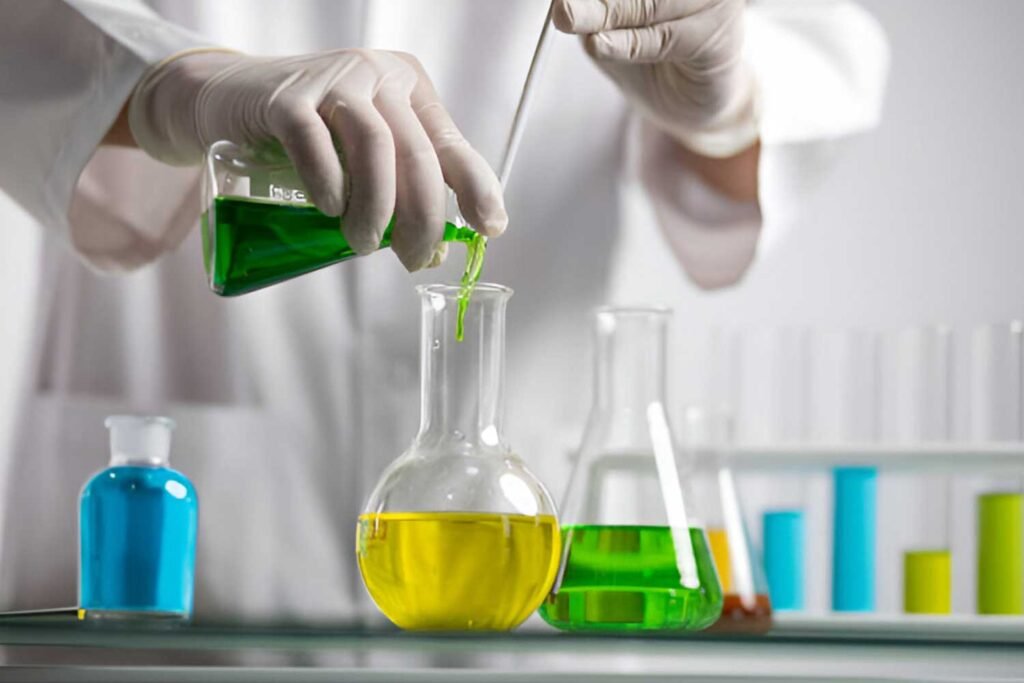
4. Nutritional Analysis And Compliance
Food evaluation is an essential determinant in analyzing the formulation of the beverage, particularly if the bottled drink is being marketed as a product with nutritional value. This stage concerns the evaluation of the nutritional composition of the food product and its conformity to the legal requirements.
Considerations
➔ Nutritional Labeling: Clearly and correctly express and distinguish it as calorie amount, sugars, and vitamin content.
➔ Regulatory Compliance: Check on the legal aspects and trade requirements of the laws governing the food safety of the product and the labels to be used in the target market area.
➔ Health Claims: Make sure that any health labels you employ are backed by the compounds incorporated in foods.
Example: When it comes to your energy drink, you’ll determine the amount of caffeine, vitamins, and antioxidants present to conform to the levels to support the health claims you wish to make on the label and also to follow the regulatory requirements.
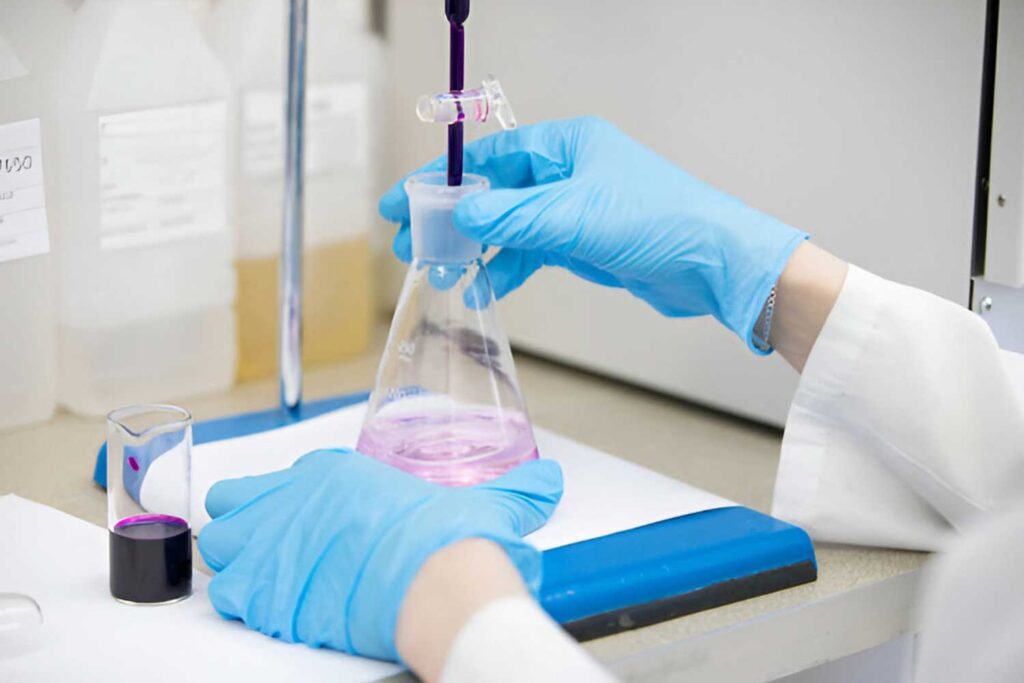
5. Beverage Recipe Cost Optimization
Every delicious drink starts with a smart recipe. We blend top-notch ingredients with savvy spending, making sure you get an exceptional taste at just the right price. It’s like solving a tasty puzzle where quality meets value in every bottle! This step focuses on balancing cost efficiency with product excellence while maintaining customer satisfaction.
Key Strategies for Cost Optimization
➔ Spending Analysis: Conduct periodic reviews of operational and ingredient costs to find areas for improvement and implement strategies to enhance profitability.
➔ Waste Reduction: Keep a close eye on the production process to cut down on waste from ingredients and packaging.
➔ Packaging Alternatives: Choose packaging that is good for the environment and doesn’t cost too much. It should keep the product safe and look good to customers who care about the planet.
➔ Smart Manufacturing Analysis: Use modern technology and machines to save on labor and energy costs.
➔ Finding the Best Ingredients: Work with trusted suppliers who offer discounts for buying in bulk or source ingredients locally to save on costs without losing quality.
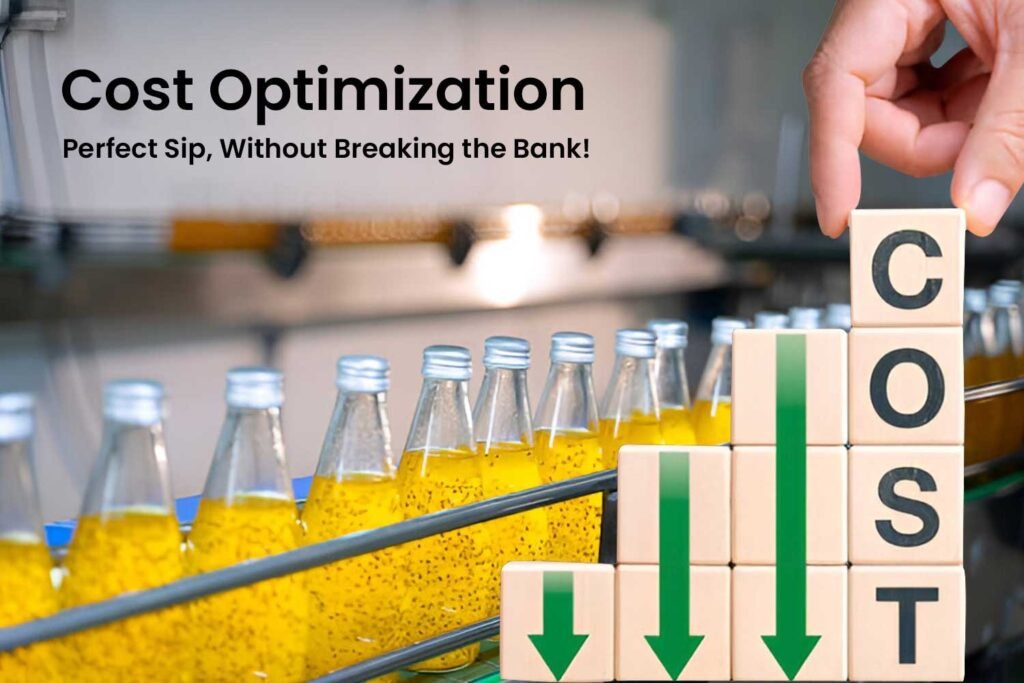
6. Drink Formulation Packaging Design
It helps attract the consumer’s attention and pass on the brand’s intended message. This stage involves choosing materials, and the packaging form for the product should be both practical and aesthetic.
Key Elements
➔ Material Selection: Select eco-friendly packaging that offers the required protection for the nature of the product.
➔ Design: Outline a fancy-looking appearance that is in harmony with your organization or a distinct selling proposition that will attract your target consumer.
➔ Labeling: Make sure that all proper information, including ingredients, allergens, and nutritional values, is included, if necessary.
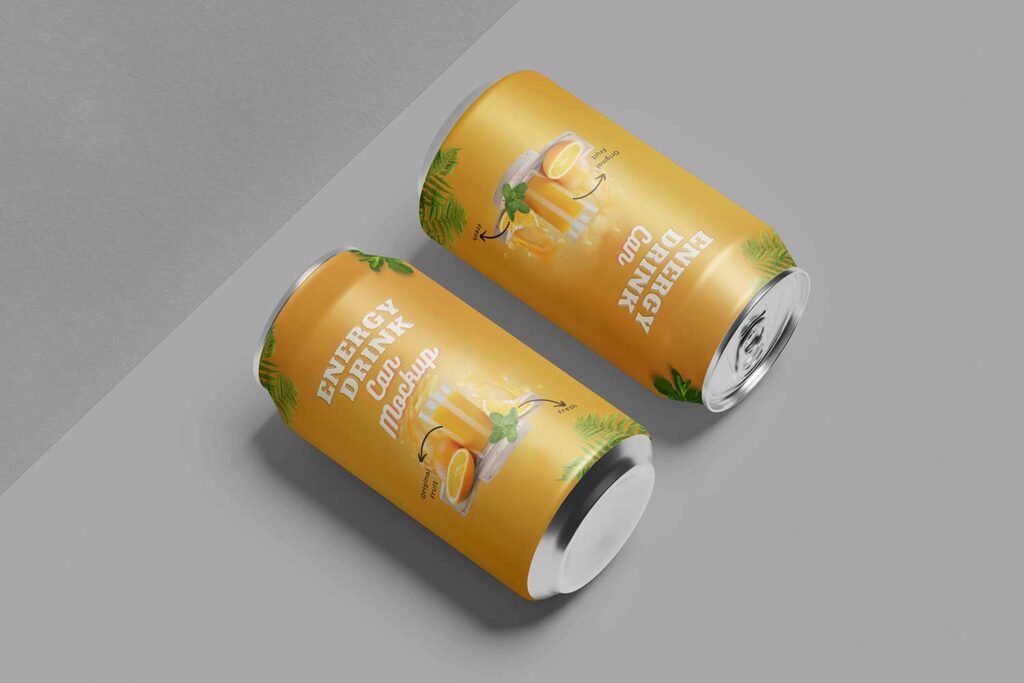
7. Shelf-Life Testing: Longevity And Stability
Shelf-life testing is critical when trying to establish how long your beverage will be good for under different storage conditions. This step also assists in the standardization of the product and maintaining high quality at a later time.
Testing Procedures
➔ Stability Testing: Consider the effects that it has on the longevity of the beverage in the areas of temperature change as well as exposure to light.
➔ Microbiological Testing: Maintain sterility of the product until its shelf expiration date is out.
➔ Sensory Evaluation: To avoid this, it is recommended that the tests be taken periodically with a prime focus on the aspects of flavor, aroma, and appearance.
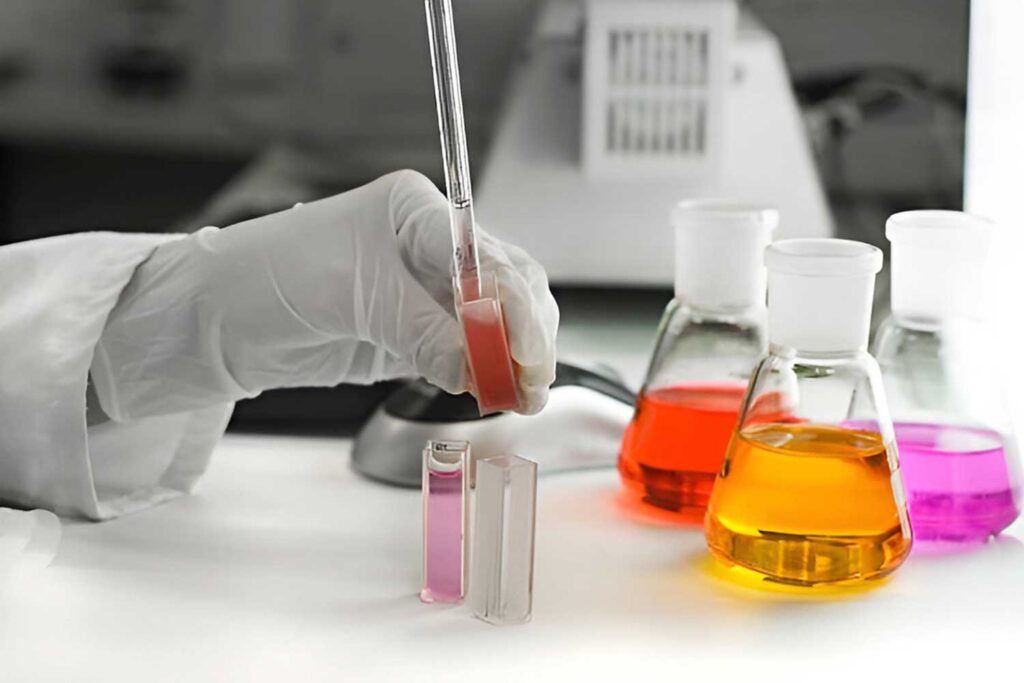
8. Market Launch Of Beverage Formulation
The last step of the beverage recipe development is the market release. It involves market positioning of the product, which involves the growth and preparation of the product with the view of making it available in large quantities for sale to supermarkets or customers directly.
Key Steps
➔ Marketing Strategy: Create an ad campaign that focuses on the special features that your beverage has, for example, whether it is natural or has positive effects on human health.
➔ Production Scaling: Make sure your manufacturing procedure is appropriate for large-scale production and would be in a position to meet the projected turnover.
➔ Distribution Channels: Select proper methods of selling the final product through retailers and service providers, internet stores or websites, or the direct selling models.
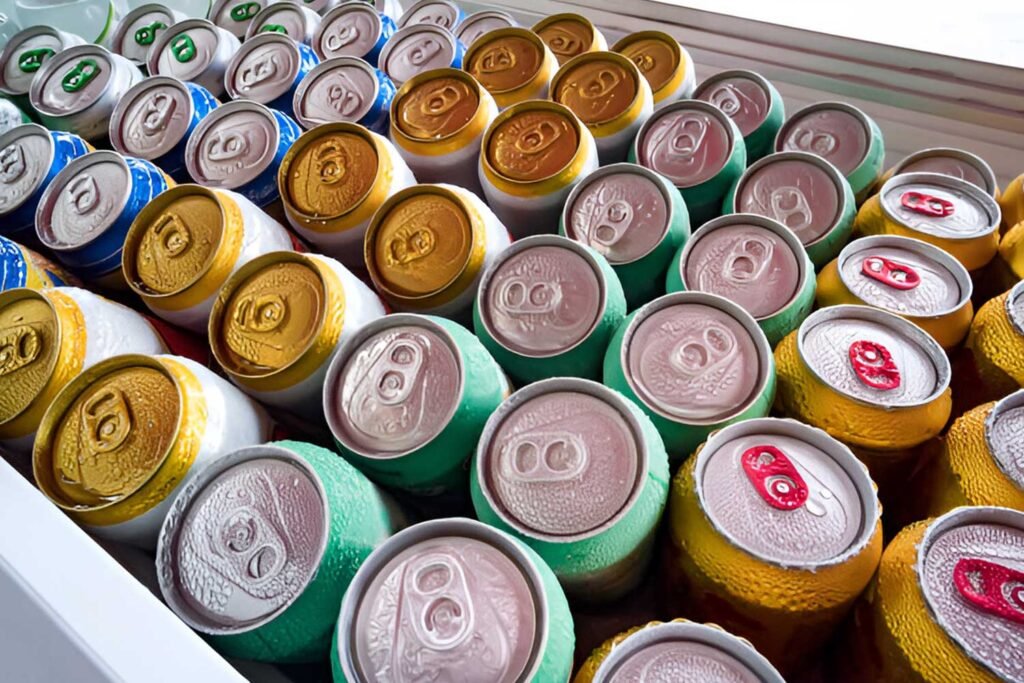
Beverage formulation is a process that is complex and not a one-time activity since it involves conceptual skills, scientific abilities, and knowledge of customers’ tastes. Right from the drink recipe development of the idea to placing the last drop into one’s glass, each step is vital in preparing a delicious and distinct drink. Whether you are working on a new energy drink, a beverage juice, or herbal tea, the steps discussed above will guide you in producing a beverage that will make the consumer crave the beverage.
Related Blogs You May Find Useful
Explore these resources to understand beverage formulation techniques, development challenges,
scale-up considerations, and market readiness.
Let Foodsure Help You With Your Beverage Recipe Formulation
To make your efforts easy and successful, don’t waste your time. With full trust and confidence, contact Foodsure, Your Food Recipe Partner now at +918130404757 and Get Started with your planning! Start your journey today and take the first step toward making your beverage recipe formulation a massive hit with Foodsure.
Turn Beverage Recipe Ideas into Market-Ready Formulations
Successful beverage products balance science, taste, stability, and compliance.
Get expert support to develop formulations that scale reliably from pilot to commercial production.
Trusted by beverage startups and FMCG brands for formulation, compliance, and scale-up.
Frequently Asked Questions
What are the key factors to consider when formulating a new beverage?
When creating a beverage, factors like flavor balance, ingredient mixing, regulatory compliance, nutritional content, and shelf life must be considered. The right combination makes sure the product succeeds in the market.
How do natural sweeteners like Stevia or Monk Fruit affect beverage formulation?
Natural sweeteners impact taste, mouthfeel, and stability. Stevia can sometimes leave a bitter aftertaste, while Monk Fruit offers a cleaner, more sugar-like sweetness. Formulators often use blends to optimize the flavor.
What are some common challenges in beverage development?
Some challenges include maintaining consistency in taste, preventing ingredient separation, ensuring shelf stability, and meeting regulatory requirements. Working with experts can help manage these hurdles.
How do beverage formulators ensure product safety and compliance?
Compliance with FSSAI, FDA, EFSA, and other regulatory bodies requires careful selection of approved ingredients, proper labeling, and safety testing. Stability and microbiological tests are also conducted before launch.
How can brands create beverages that align with current market trends?
By including functional ingredients (adaptogens, probiotics), using sustainable packaging, reducing sugar content, and following clean-label trends, brands can appeal to modern consumers. Market research plays a crucial role in this process.
Why is beverage formulation different at commercial scale?
At commercial scale, factors like heat transfer, mixing efficiency, ingredient solubility, and processing time change significantly, often requiring formulation adjustments.
How important is shelf-life testing in beverage development?
Shelf-life testing is critical to ensure product safety, flavor consistency, and stability throughout distribution and storage.
Can functional ingredients affect beverage taste and stability?
Yes. Ingredients such as vitamins, minerals, and botanicals can interact with flavors and liquids, requiring careful formulation to maintain taste and stability.
When should packaging decisions be made during beverage development?
Packaging decisions should be made early, as container type and material directly influence shelf life, filling process, and regulatory compliance.
Why do brands work with beverage formulation experts?
Experts help brands avoid costly mistakes, optimize formulations for scale, ensure compliance, and accelerate time to market.

